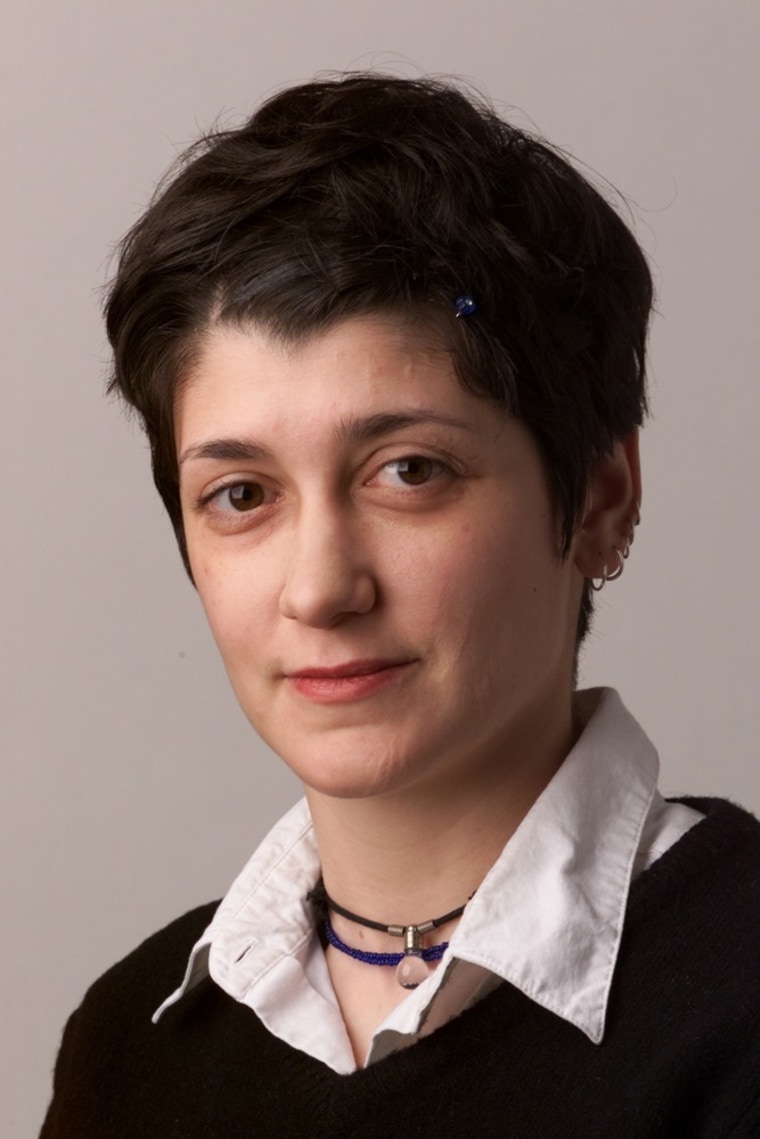A U.S. journalist who was detained in Syria in April and then apparently sent to her native country Iran has been freed, her fiance and her employer confirmed on Wednesday.
Dorothy Parvaz, 39, who went to Syria to cover the anti-government uprising for al-Jazeera television, was said to be "safe and in good health" by the news network.
Al-Jazeera reported that her fiance Todd Barker was with Parvaz's family when they heard the news and that she would be traveling to be with them "as soon as possible."
"The family and me are elated, and we're really grateful to the Iranian authorities who treated her very respectfully," Barker told The Seattle Times. "It's over."
Barker, who lives in Canada, said she had called him from Qatar as she was clearing customs in Doha, Qatar, Wednesday morning local time (9:30 p.m. PT Tuesday). Al-Jazeera said the flight had come from Iran.
"I looked at my phone, saw it was her number and God, it was as unreal as the moment when I got the call that she hadn't been contacted in 24 hours (when she went missing)," Barker told The Canadian Press.
'So sorry'The Times reported that Parvaz told Barker, "I'm so sorry."
Barker said Parvaz told him that she was "treated very well, she was interrogated, but she's fine."
He told the Times that his fiancee was expected to arrive in Canada on Wednesday or Thursday.
"She can't get to Vancouver fast enough, in my opinion," he said.
Iran had said Tuesday that Parvaz, who also has Canadian citizenship, had attempted to enter Syria with an expired Iranian passport. It also said she did not have proper press clearance.
However it offered no details on whether she was actually being held in Iran. The comments made Tuesday by Iran's foreign ministry spokesman, Ramin Mehmanparast, were the first public remarks by an Iranian official about Parvaz.
Prior to that, she was last seen leaving Qatar on April 29 for Syrian capital Damascus.
Syrian authorities said later Parvaz had been sent to Iran shortly after her arrival, but her whereabouts had remained unknown.
Al-Jazeera and international press groups had appealed for information on Parvaz and said her case highlighted the intense pressures on journalists by regimes facing pro-reform revolts across the Arab world.
In Syria, the government of President Bashar Assad has banned most outside journalists and placed strict controls on the few media outlets remaining in the country.
'Violations' committed
Mehmanparast told reporters that Parvaz committed "violations" by trying to enter Syria with an expired Iranian passport and said she had "planned to work without a press permit and had several passports on her."
It's unclear what rules could be broken by traveling with multiple valid passports, but Mehmanparast reiterated that Iran does not recognize multiple nationalities for Iranians. Iranians do not need advance visas to enter Syria.
Mehmanparast did not specifically address the whereabouts of the 39-year-old Parvaz. He said the Foreign Ministry was "following the issue to find out what happened to Parvaz, which is important to us, too."
The New York-based Committee to Protect Journalists has said about 20 local and international journalists have been assaulted or detained in Syria or expelled from the country since the protests against Assad broke out in March.
Two Associated Press journalists were expelled from the country with 45 minutes' notice.
Five Reuters journalists also faced detention and intimidation, including one who was expelled by Syrian authorities on March 25 after five years as the agency's correspondent in Damascus.
